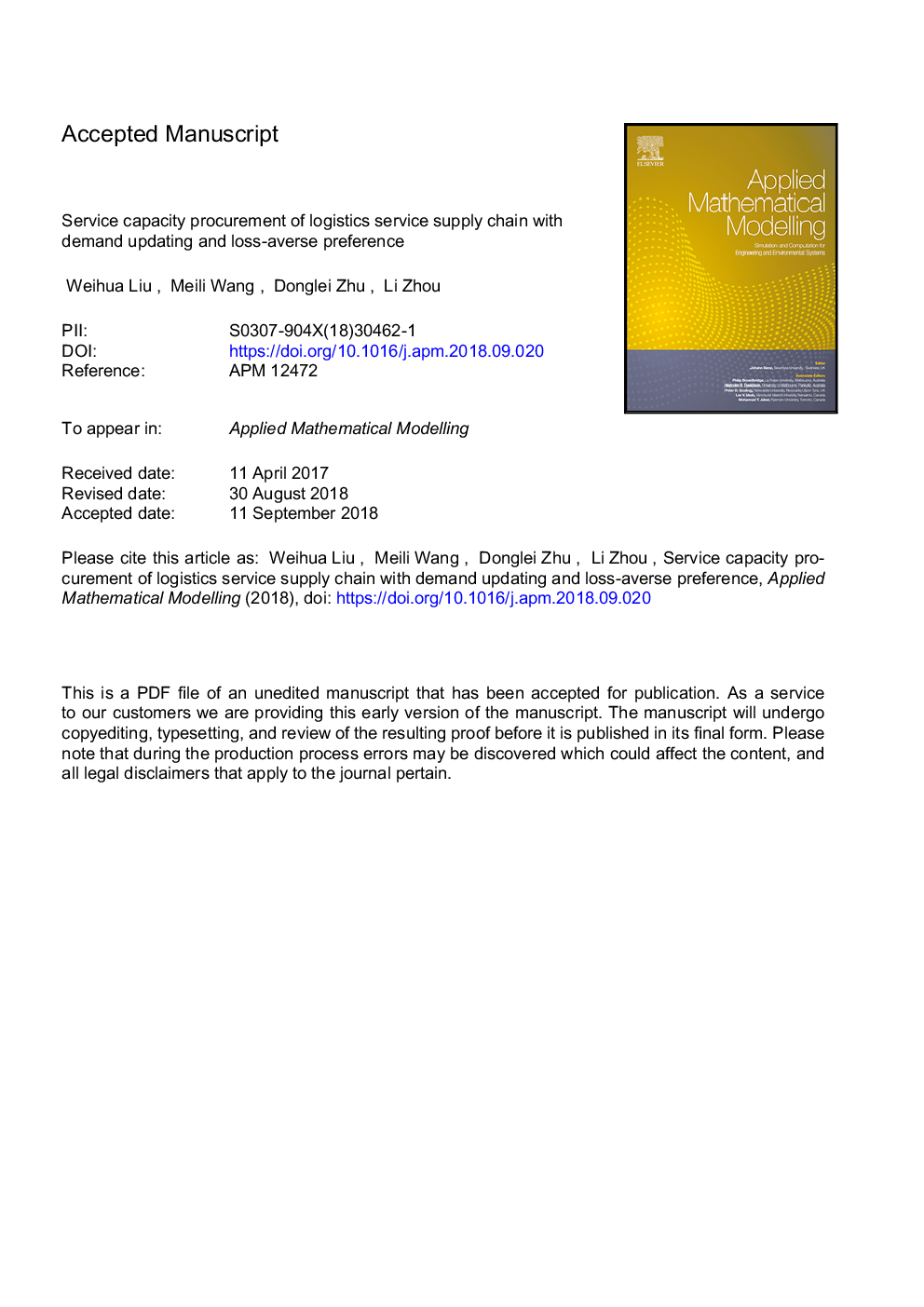| Article ID | Journal | Published Year | Pages | File Type |
|---|---|---|---|---|
| 11026504 | Applied Mathematical Modelling | 2019 | 53 Pages |
Abstract
This paper studies the impacts of loss-averse preference on the service capacity procurement decisions with demand updating in a logistics service supply chain, which consists of one logistics service integrator and one functional logistics service provider. It starts from a basic two-stage Stackelberg game model, then, extends to three scenarios where either the integrator or the provider or neither of them has loss-averse preference. The impact of loss-averse preference on the decisions of supply chain members is discussed by comparing the four models. Our results reveal, first, the loss-averse preferences do not always affect the decisions of supply chain members. If certain conditions are satisfied, the logistics service integrator can benefit from its loss-averse preference. Second, the increased service level can affect the logistics service integrator's procurement strategy and the functional logistics service provider's pricing strategy. This effect is only related to the loss-averse preference of the functional logistics service provider. Last, under certain conditions, the total service capacity decreases with the increased service level, regardless of whether or not the supply chain members have loss-averse preferences.
Related Topics
Physical Sciences and Engineering
Engineering
Computational Mechanics
Authors
Liu Weihua, Wang Meili, Zhu Donglei, Zhou Li,
